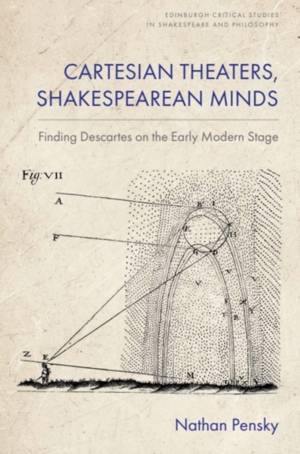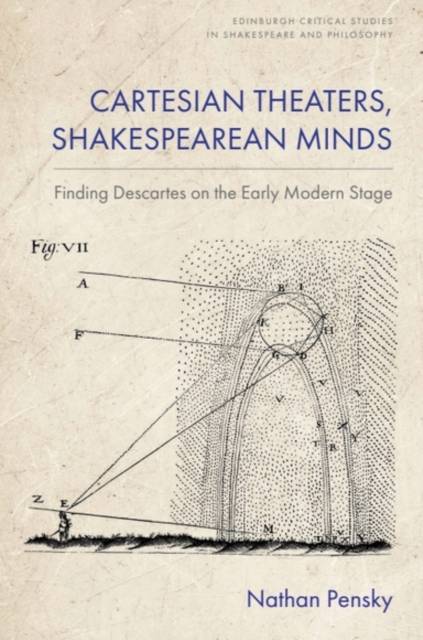
Bedankt voor het vertrouwen het afgelopen jaar! Om jou te bedanken bieden we GRATIS verzending (in België) aan op alles gedurende de hele maand januari.
- Afhalen na 1 uur in een winkel met voorraad
- In januari gratis thuislevering in België
- Ruim aanbod met 7 miljoen producten
Bedankt voor het vertrouwen het afgelopen jaar! Om jou te bedanken bieden we GRATIS verzending (in België) aan op alles gedurende de hele maand januari.
- Afhalen na 1 uur in een winkel met voorraad
- In januari gratis thuislevering in België
- Ruim aanbod met 7 miljoen producten
Zoeken
€ 140,95
+ 281 punten
Omschrijving
Most scholars of early modern English literature consider Cartesian rationalism to be a poor theoretical lens. Though René Descartes figures as one of the most important philosophers in the early modern period, and in the history of philosophy itself, he has received scorn from literary scholars of the Renaissance who have become skeptical of "heroes of subjectivity." Cartesian Theaters, Shakespearean Minds challenges the commonplace dichotomy between Cartesian subjectivity and early modern material culture and reconsiders Descartes as a foundational figure in early modern literary studies. It corrects outdated readings by scholars that would position him as a champion of disembodied mind. Instead, Nathan Pensky argues that both Descartes and Shakespeare, as well as several of the latter's contemporaries, draw from overlapping philosophical histories, and that the mind-body problem as evident in early modern drama clearly anticipates Cartesian thought.
Specificaties
Betrokkenen
- Auteur(s):
- Uitgeverij:
Inhoud
- Aantal bladzijden:
- 312
- Taal:
- Engels
- Reeks:
Eigenschappen
- Productcode (EAN):
- 9781399556965
- Verschijningsdatum:
- 30/04/2026
- Uitvoering:
- Hardcover
- Formaat:
- Genaaid
- Afmetingen:
- 156 mm x 234 mm

Alleen bij Standaard Boekhandel
+ 281 punten op je klantenkaart van Standaard Boekhandel
Beoordelingen
We publiceren alleen reviews die voldoen aan de voorwaarden voor reviews. Bekijk onze voorwaarden voor reviews.









